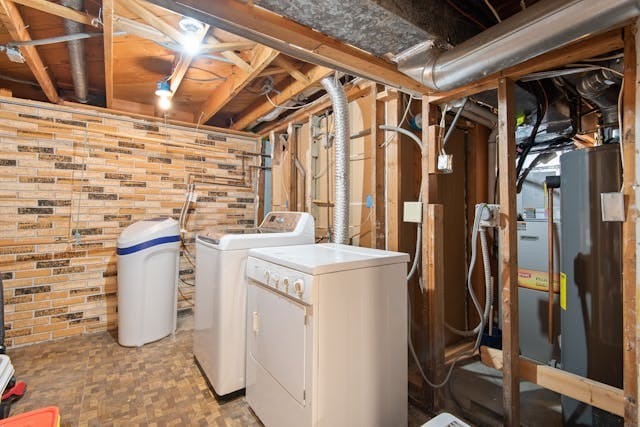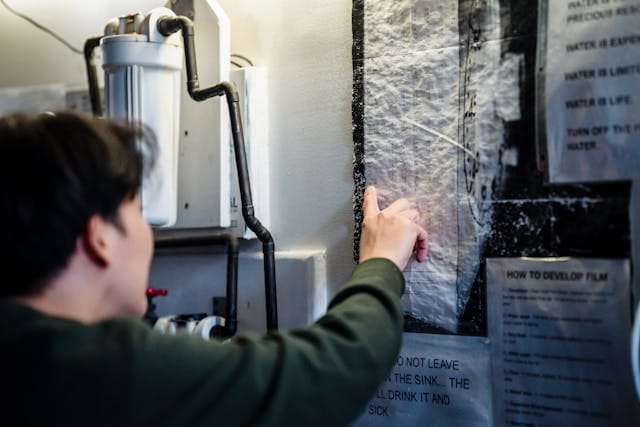Email: info@encanovan.com | Phone: (604) 764-2031
Traditional vs. Tankless Water Heaters: Which One is Right for You?
When it comes to choosing a water heater for your home, two popular options often stand out: traditional water heaters and tankless water heaters. Each has its advantages and disadvantages, depending on your household needs, budget, and energy efficiency goals. This guide will help you compare the two and decide which is best for your home.

Traditional vs. Tankless Water Heaters: Which One is Right for You?
When it comes to choosing a water heater for your home, two popular options often stand out: traditional water heaters and tankless water heaters. Each has its advantages and disadvantages, depending on your household needs, budget, and energy efficiency goals. This guide will help you compare the two and decide which is best for your home.
What Is a Traditional Water Heater?
A traditional water heater, also known as a storage tank water heater, uses a large tank to store and heat water. The tank constantly maintains a supply of hot water, even when it’s not in use.
Key Features:
- Common sizes range from 30 to 80 gallons.
- Heats water in advance and keeps it warm until needed.
- Typically powered by gas or electricity.
What Is a Tankless Water Heater?
A tankless water heater, also known as an on-demand water heater, heats water only when it’s needed. Water flows through a heating element or exchanger, providing hot water instantly without storing it in a tank.
Key Features:
- Compact design with no storage tank.
- Provides hot water on demand.
- Also powered by gas or electricity.
Comparison: Traditional vs. Tankless Water Heaters
| Feature | Traditional Water Heater | Tankless Water Heater |
|---|---|---|
| Initial Cost | Lower upfront cost ($500–$1,500, including installation). | Higher upfront cost ($2,000–$4,500, including installation). |
| Operating Cost | Higher due to energy consumption to maintain hot water. | Lower since it heats water only as needed. |
| Energy Efficiency | Less efficient due to standby heat loss. | Highly efficient with no standby heat loss. |
| Lifespan | 10–15 years. | 20+ years with proper maintenance. |
| Hot Water Supply | Limited to tank size; may run out during heavy use. | Unlimited, as long as the demand doesn’t exceed capacity. |
| Space Requirements | Requires a large space for the tank. | Compact, wall-mounted design saves space. |
Advantages and Disadvantages
Traditional Water Heater
Advantages:
- Lower upfront cost.
- Easier and less expensive to install.
- Provides a steady supply of hot water for small to medium households.
Disadvantages:
- Higher energy costs due to constant heating.
- Takes up more space.
- May run out of hot water during peak use.
Tankless Water Heater
Advantages:
- Energy-efficient and eco-friendly.
- Unlimited hot water on demand.
- Longer lifespan, reducing replacement costs.
- Compact design ideal for smaller spaces.
Disadvantages:
- Higher initial cost.
- May struggle to meet simultaneous high-demand usage (e.g., multiple showers).
- Installation may require electrical or gas line upgrades.
Which One Is Right for You?
Choose a Traditional Water Heater If:
- You’re on a tight budget and need a lower upfront cost.
- You have a larger space to accommodate the tank.
- Your household’s hot water usage is consistent but not excessive.
Choose a Tankless Water Heater If:
- Energy efficiency and long-term savings are your priority.
- You want unlimited hot water on demand.
- You have limited space and prefer a compact unit.
- Your household is prepared for the higher upfront investment.
Still Unsure? Let the Experts Help!
At Encano Plumbing and Drainage Ltd., we understand that choosing the right water heater can be overwhelming. That’s why our experienced team in Richmond, BC, is here to guide you every step of the way. We’ll assess your household’s needs, budget, and energy efficiency goals to recommend the perfect solution.
Contact us today for expert advice, installation, and maintenance of traditional and tankless water heaters!

